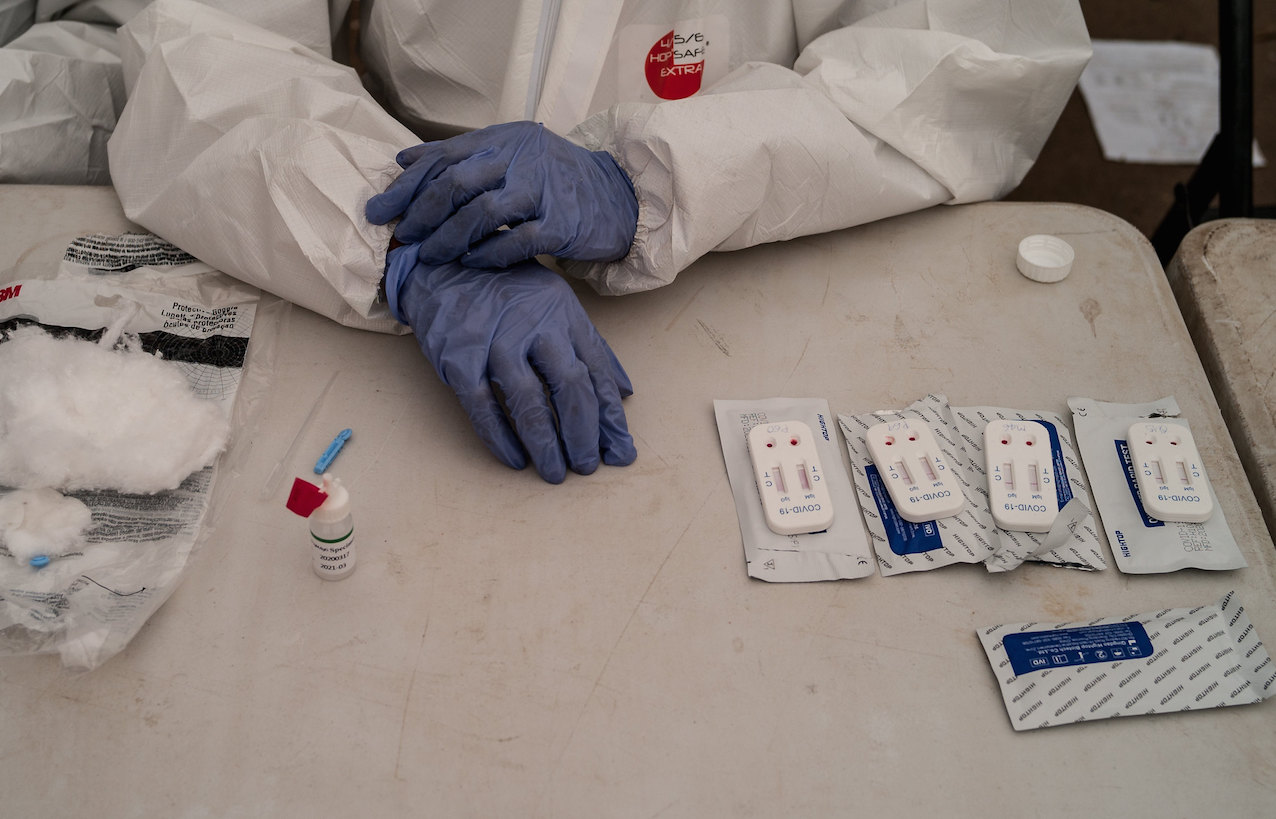It’s untenable to require migrant workers to bear the burden of cost to obtain a pre-departure COVID-19 test, say allies of migrant workers.
Transport Canada has issued an order requiring that all travellers coming to Canada must present a negative COVID-19 test obtained in the 72 hours prior to their departure. The requirement came into effect on January 7 for most countries. Workers coming to Canada through the Temporary Foreign Worker Program (TFWP) are not exempt from the requirement.
The activist group Justicia for Migrant Workers says this adds an undue burden on migrant workers, and sent a letter to the federal cabinet committee on COVID-19 to that effect.
In Mexico, for instance, workers must pay up to around C$350 to obtain the specific COVID-19 PCR test required for travel into Canada. The costs vary based on the region the worker is based in, with costs in more rural areas generally being higher.
This does not include the cost of transportation to and from the testing location, and, is in addition to the other costs migrant workers must take on prior to working in Canada, including the cost of work permits, airfare, and other biometric expenses. Workers may be reimbursed for a portion of these costs by their employer depending on their work contracts. Often, costs like airfare will be deducted from their wages.
Justicia for Migrant Workers organizer Chris Ramsaroop points out that after these costs are deducted from the minimum wage migrant workers earn, they actually make much less than minimum wage.
According to the letter, a migrant worker on a short-term contract earning between $5,000 and $7,000 may lose 14 per cent to 29 per cent of their total wages to the various costs involved in travelling to work in Canada.
Transport Canada announced the pre-departure testing requirements on December 31. The pre-departure test requirements do not exempt travellers from having to complete a 14-day quarantine period.
A spokesperson for Minister of Employment Carla Qualtrough confirmed in an email today that the requirements were applicable to migrant workers coming to Canada under the TFWP.
“We will continue to work with workers, employers, partner countries and stakeholders to ensure the program’s success alongside this new requirement,” said the statement.
Executive director at Employment and Social Development Canada (ESDC) Jonathan Wallace acknowledged “the implications that these new requirements have for temporary foreign workers and their employers,” in a January 6 email to partners and stakeholders of the TFWP.
Transport Canada has allowed some flexibility for travellers in some countries for a limited time, “in recognition of the need for testing systems to adjust.”
Travellers departing from the Caribbean or South America, for instance, must obtain a negative test 96 hours in advance of their departure — not 72 hours — until January 14. Travellers departing from Haiti are exempt from the requirement to obtain a test until January 21, according to Transport Canada
Many migrant workers will be arriving in Canada towards the end of January to begin their winter work contracts, said Ramsaroop.
Maria, who declined to have her last name published due to privacy concerns, works with migrant workers through her tax preparation business. She is also an ally of Justicia for Migrant Workers.
Maria, who is from Mexico, said she is concerned not only about the additional cost of testing — though she has been hearing concerns from her clients about that — but also about the additional travel that rural workers must undertake to obtain a test.
Testing sites are mostly located in urban centres, so those living in rural areas must travel into cities — often relying on public transit to do so — to get a test. This unnecessarily puts them at an increased risk of exposure, Maria said.
“Rural areas in Mexico are not like rural areas in Canada,” Maria said. In that 72-hour period prior to departure, workers might have to take a bus, wait in a bus station, take the subway, all in addition to their final trip to the airport in Mexico City to come to Canada.
“By then the test is garbage,” she said.
Maria said she understands that Canada is trying to protect itself by introducing this requirement, but it would be much more effective to administer tests to migrant workers upon arrival in Canada.
Ramsaroop sees the pre-departure testing requirements as yet another way Canada is downloading the cost of health care for migrant workers onto the workers themselves, and onto partner countries.
Migrant agricultural workers are eligible for provincial health-care coverage for the duration of their contract in Canada, but often, when workers become sick or injured, their employers choose to send them back to their home country rather than house a worker who is unable to work for that season.
This practice is known in the sector as “medical repatriation.”
Ramsaroop and Maria are concerned that the upcoming agricultural season will continue to see unmitigated outbreaks of COVID-19 among migrant workers who once again must live in crowded bunkhouses.
As recently as November 2020 there were reports of two ongoing outbreaks at agricultural facilities in Windsor-Essex.
Chelsea Nash is rabble’s labour beat reporter for 2020. To contact her with story leads, email chelsea[at]rabble.ca.
Image credit: World Bank Photo Collection/Flickr




